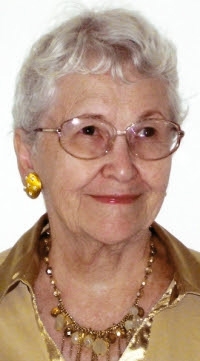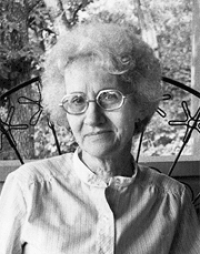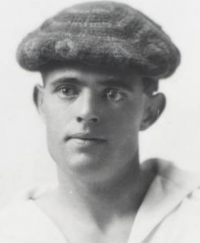January 12
Cleo Fellers Kocol

On this date in 1927, Cleo Fellers Kocol was born in Cleveland, Ohio. (She’s always been glad to share a birthday with Jack London, as her beliefs, or lack thereof, often echoed his.) She grew up in a nonreligious household and followed proudly in her mother’s intrepid feminist footsteps: “I still look back on our Sundays as magical. They were family time with games led by Dad and extended family taking part, everyone free of religion.” After high school, she worked for the Department of the Navy during World War II and then as a medical secretary, doctor’s assistant and assistant hospital administrator.
At age 43 she married Hank Kocol, a health physicist. Her feminism and atheism came to the fore when she and Hank lived in New Jersey in the 1970s and joined FFRF and the American Humanist Association. She served on AHA’s national board and chaired its feminist caucus for many years and was its Humanist Heroine in 1988. The Kocols moved to Washington state in 1979 and became part of a weekly Sunday picket at the Mormon Temple in Bellevue to protest the church’s opposition to the Equal Rights Amendment. She and 20 others were arrested in 1980 for chaining themselves to the temple gates to stop Mormon President Spencer Kimball from entering, the first of her three civil disobedience arrests.
Moving to California, they became charter members of Atheists and Other Freethinkers, started a highway cleanup project and were active in the Humanists of Greater Sacramento. In the early 1980s, Kocol wrote and performed three, hour-long women’s history shows she presented throughout the U.S. She was commissioned by the Navy to write and perform a short play about “Amazing” Grace Hopper, a computer pioneer and one of the first women to achieve the rank of Navy commodore.
Her memoir “The Last Aloha” was published in 2015. It details her humanism and feminism and life with Hank, from their meeting in 1970 to their “carrying forth the freethinker’s word” around the world to his death in 2013. She died at age 90. (D. 2016)
“Not the church, not the state, women must decide our fate.”
— Kocol's favorite chant while protesting for equal rights
Ruth Hurmence Green

On this date in 1915, Ruth Hurmence Green was born. The Iowa native received a journalism degree from Texas Tech in 1935, married, had three children and settled in Missouri. Green, a “half-hearted Methodist,” first plodded through the bible when convalescing from cancer in her early 60s, calling the shock she suffered from reading the book worse than the trauma caused by her illness. “There wasn’t a page of the bible that didn’t offend me in some way. There is no other book between whose covers life is so cheap,” she said, prompting her to write the enduring modern freethought classic The Born Again Skeptic’s Guide to the Bible (1979).
In the book’s preface, Green wrote: “I am now convinced that children should not be subjected to the frightfulness of the Christian religion. … If the concept of a father who plots to have his own son put to death is presented to children as beautiful and as worthy of society’s admiration, what types of human behavior can be presented to them as reprehensible?” When terminal cancer developed in 1981, Green, who always insisted “There are atheists in foxholes,” took her own life, swallowing painkillers in 1981.
In her last letter to Anne Gaylor of the Freedom From Religion Foundation on July 4, 1981, she wrote, “Freedom depends upon freethinkers.” (D. 1981)
“There was a time when religion ruled the world. It is known as the Dark Ages.”
— Ruth Hurmence Green, 1980
Jack London

On this date in 1876, novelist Jack London was born in San Francisco. The short-lived adventurer sought gold in the Klondike rush, traveled, worked for newspapers, and found fame as the author of Call of the Wild and White Fang, humanistic classics with dog protagonists. London, an admirer of Marx and Nietzsche, called himself “a hopeless materialist.” (D. 1916)
“I believe that when I am dead, I am dead. I believe that with my death I am just as much obliterated as the last mosquito you and I squashed.”
— London, quoted in "Who's Who in Hell," compiled by Warren Allen Smith (2000)
